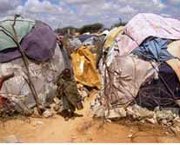At the end of the G20, Nicolas Sarkozy’s frustration at the UK’s stance on a number of issues, including the financial transaction, or Robin Hood tax, was evident. During journalists’ questions at the final communiqué press conference, the BBC’s Paul Mason got short shrift from the French President.
In a question delivered in pretty passable French, Mr Mason said “It's evident that you and Mme Merkel, the two most powerful governments in Europe, are trying to change the governments of Italy and Greece. How is that just? And once it's started, where does it stop?”
Sarkozy insisted the question was too obvious, was so obvious in fact the BBC did not expect an answer and had already made up its mind. With his diminutive dander evidently up, Sarkozy then played to the gallery of international journalists stating that Mr Mason had little understanding of “the subtleties of the European construction” because he “is from an island”. It’s true that the press gaggle giggled at this rather unstatesmanlike retort, and even Mr Mason smiled, but I’m not sure America’s new best buddy had meant to come across like a defensive politics teacher squashing the over-reaching kid in the class.
But Mr Mason is getting a reputation for publicly pointing at elephants in the room and this G20 moment was bettered perhaps in recent weeks only by his query thrown to Italy’s premier Silvio Berlusconi which asked: “How can the world take you seriously if you can't implement austerity?"
It appears that this question brought on a splutter of conniption fits from Italian TV journalists, much to the amusement of the UK press corps.
And all I can say is power to Mr Mason’s arm. But at this G20 I would have liked to have seen a few more elephants identified in the press conferences on behalf of the poorest nations.
I would have liked someone to have asked how the G20 could conscience such emergency measures to save Europe while nations with less clout in the developing world founder on sharp rocks of climate change impacts, food insecurity and lack of infrastructure without any such rapid crisis response from rich nations.
I would have liked to ask what special guest Ethiopia had to say from the sidelines about the diversion from Sarkozy’s development-rich agenda for this year’s summit?
And I would like to have asked those – including David Cameron - who blocked the progress of a financial transaction or Robin Hood tax – what alternatives are you offering and when will you deliver? I would like to ask them why they stand in the way rather than letting the willing get on with their plan?
This week someone on Radio 4’s Today programme mooted the idea that we may see people in Greece starving if the situation isn’t dealt with well and quickly, and already soup kitchens in Athens are filling up.
There’s absolutely nothing to belittle about Greece’s predicament right now and I feel for the people of Greece whose government, to a greater extent, is being used as a scapegoat by more powerful European nations that failed to deliver anything nearly strong enough from their Brussels all-nighter last week.
But the idea of starvation and soup kitchens in Greece? It makes you stop and think doesn’t it? People like you and me going without. Not a tighten-your-belt going without, but a basic needs going without. People in the UK media are talking and writing about the potential for people in Europe having no food: going hungry. And remember this must be even more terrifying for Greece because they suffered famine in the 1940s during the joint German and Italian occupation. There will be many people alive now who remember it and who have something to say about Germany’s present role in the bailout.
But then remember that a country far, far away like, say, Ethiopia, has been rolling through food crisis after food crisis for decades and right now East Africa is deep in famine in many areas. There are people who have lost whole families during the present drought and many who remember those they lost in the droughts that stretch back into the 1980s and before.
I’m not naive enough to think things near and here don’t resonate more with most people than issues affecting communities on what can feel like the other side of the world – both geographically and culturally. But while Europe tries to save itself from the contagion of the Greek crisis, let us not forget to keep pointing at the elephants in the room:
· Almost one person in five – 1.2 billion men, women and children – are currently living in a situation of extreme poverty, surviving on the equivalent of less than one dollar a day; half the people in the world are trying to manage below the poverty level of two dollars a day
· About 824 million people go hungry or have a precarious food supply; 500 million of them suffer from chronic malnutrition
· Throughout the world, 170 million children suffer from malnutrition, more than 100 million never attend school, 230 million have no access to secondary education, and almost 250 million work to pay for their own needs and those of their families
· In the industrialised countries, more than 100 million people live below the income poverty line, 37 million are jobless, and more than 5 million people are homeless
· More than 840 million adults in the world are illiterate – 65% of them are women
· 1.6 billion people in the world have no access to drinking water
· 800 million people have no access to health care



